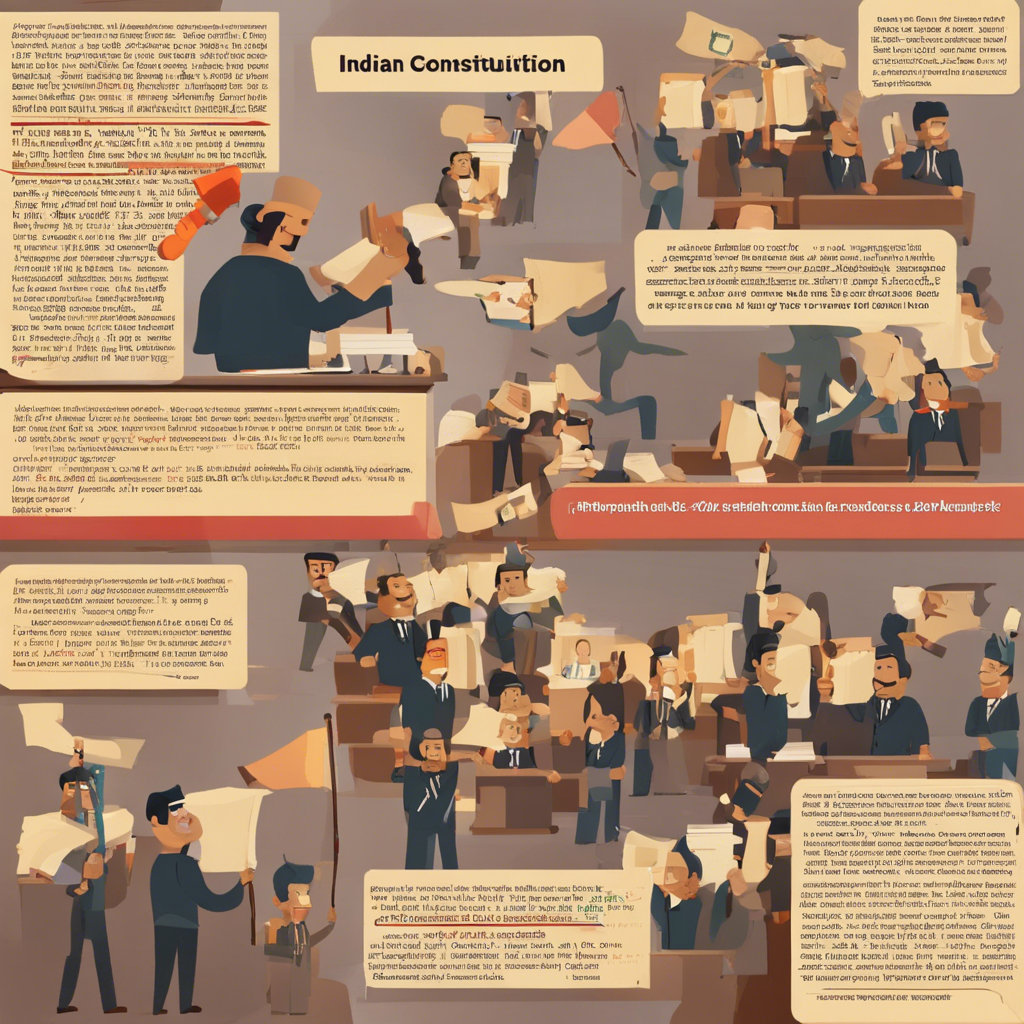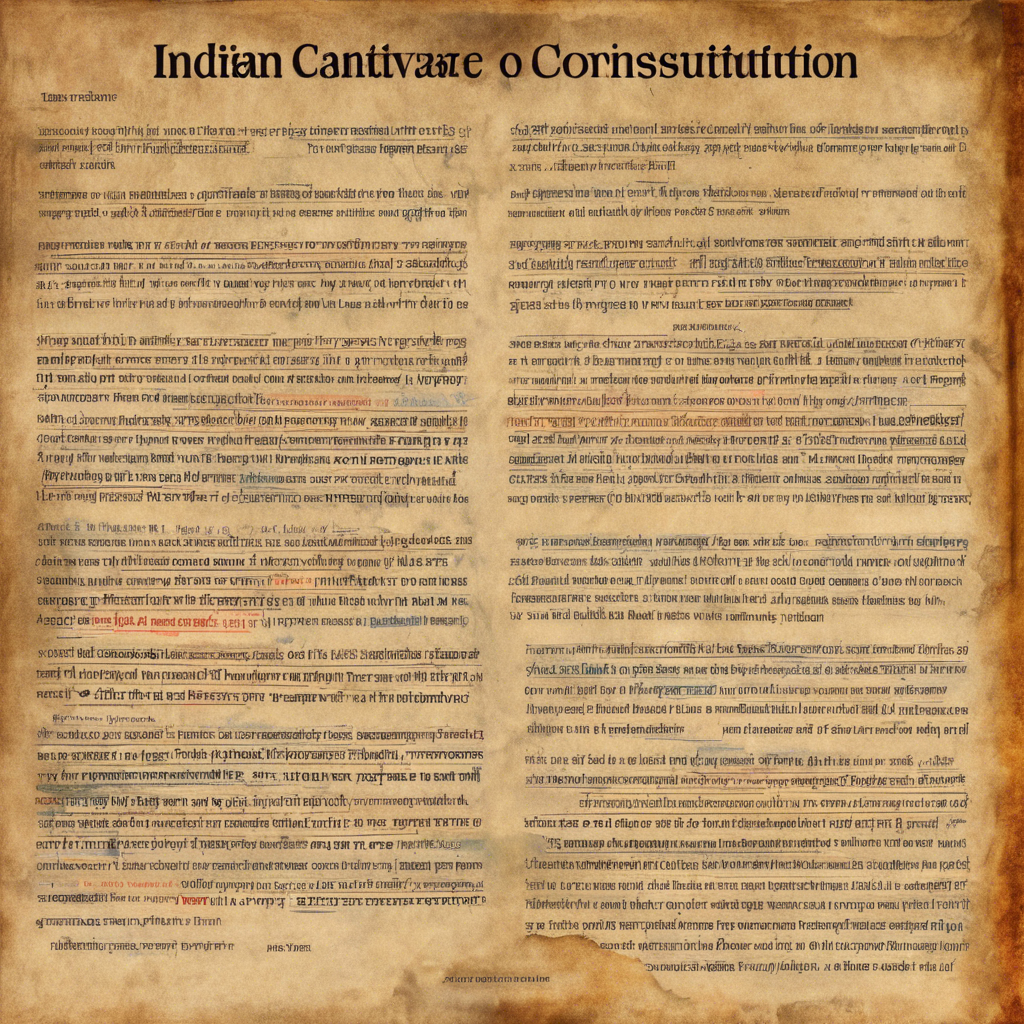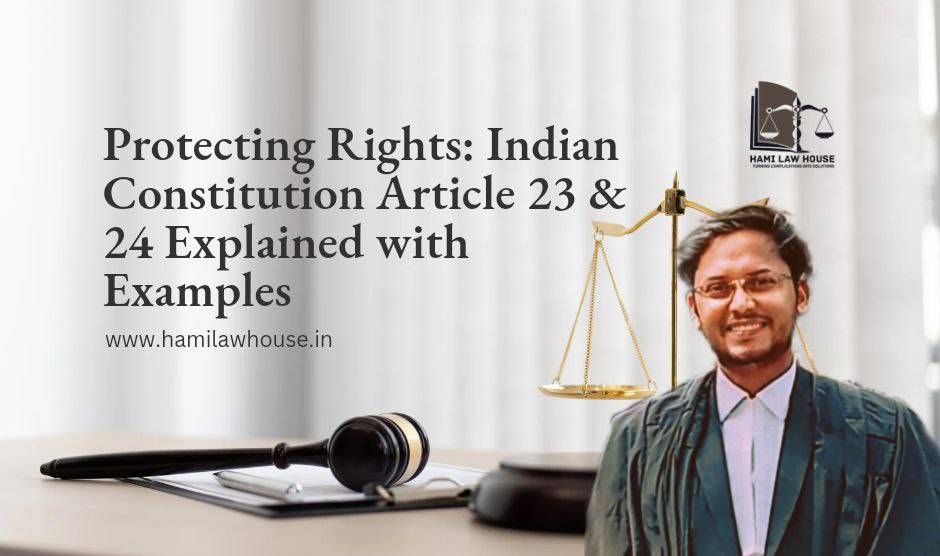New Delhi: Unveiling the Protections Against Exploitation: In-depth Analysis of Indian Constitution’s Article 23 and 24- Article 23 and Article 24 of the Indian Constitution are provisions that deal with the fundamental rights of citizens related to the prohibition of trafficking in human beings and forced labor, and the prohibition of child labor, respectively.
- Article 23 – Prohibition of traffic in human beings and forced labor: Article 23 prohibits trafficking in human beings and any form of forced labor. It states that “traffic in human beings and begar and other similar forms of forced labor are prohibited, and any contravention of this provision shall be an offense punishable in accordance with law.”

Prohibition of traffic in human beings and forced labor is a fundamental right guaranteed under Article 23 of the Indian Constitution. It ensures that no person shall be subjected to trafficking or forced into any form of labor against their will. This provision prohibits practices like bonded labor, where individuals are forced to work under exploitative conditions without adequate remuneration or the freedom to leave. Violation of this right is punishable by law, emphasizing the government’s commitment to safeguarding the dignity and freedom of its citizens.
Example: Suppose there is a case where individuals are being forced into bonded labor at a brick kiln. The employer is not paying them proper wages, and they are unable to leave the premises. This situation violates Article 23 of the Indian Constitution as it constitutes forced labor and is punishable under the law.

- Article 24 – Prohibition of child labor: Article 24 prohibits the employment of children below the age of 14 years in any factory, mine, or hazardous employment. It ensures that children are not subjected to exploitation and are allowed to have an education and a healthy upbringing.
Example: If a factory employs children under the age of 14 to work in dangerous conditions or with hazardous machinery, it would be a violation of Article 24. This article ensures that children are protected from being involved in hazardous work and instead, they receive proper education and care.
These provisions in the Indian Constitution are crucial for safeguarding the rights and welfare of individuals, especially vulnerable sections like children and those at risk of forced labor or trafficking. They reflect India’s commitment to protecting the dignity and rights of its citizens.

Read More: Click Here
Click Here: Hami Law TV
